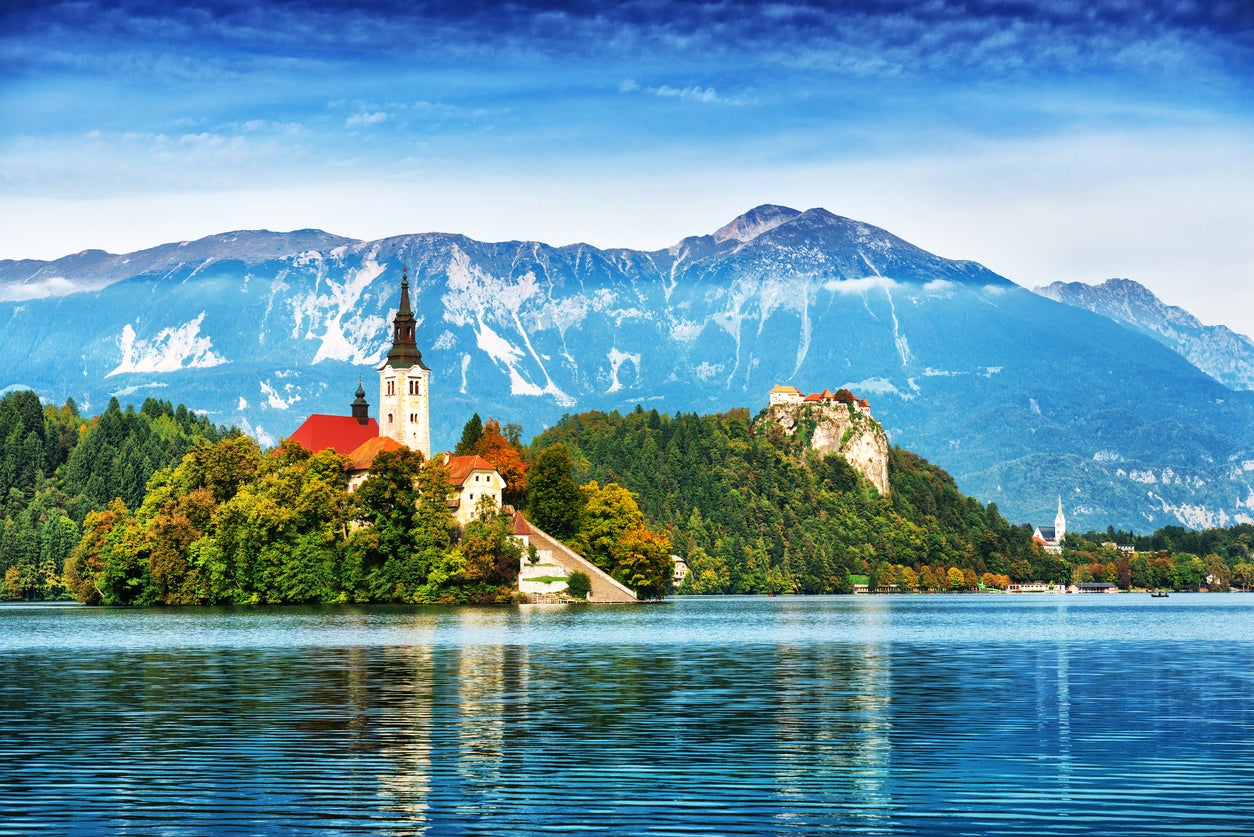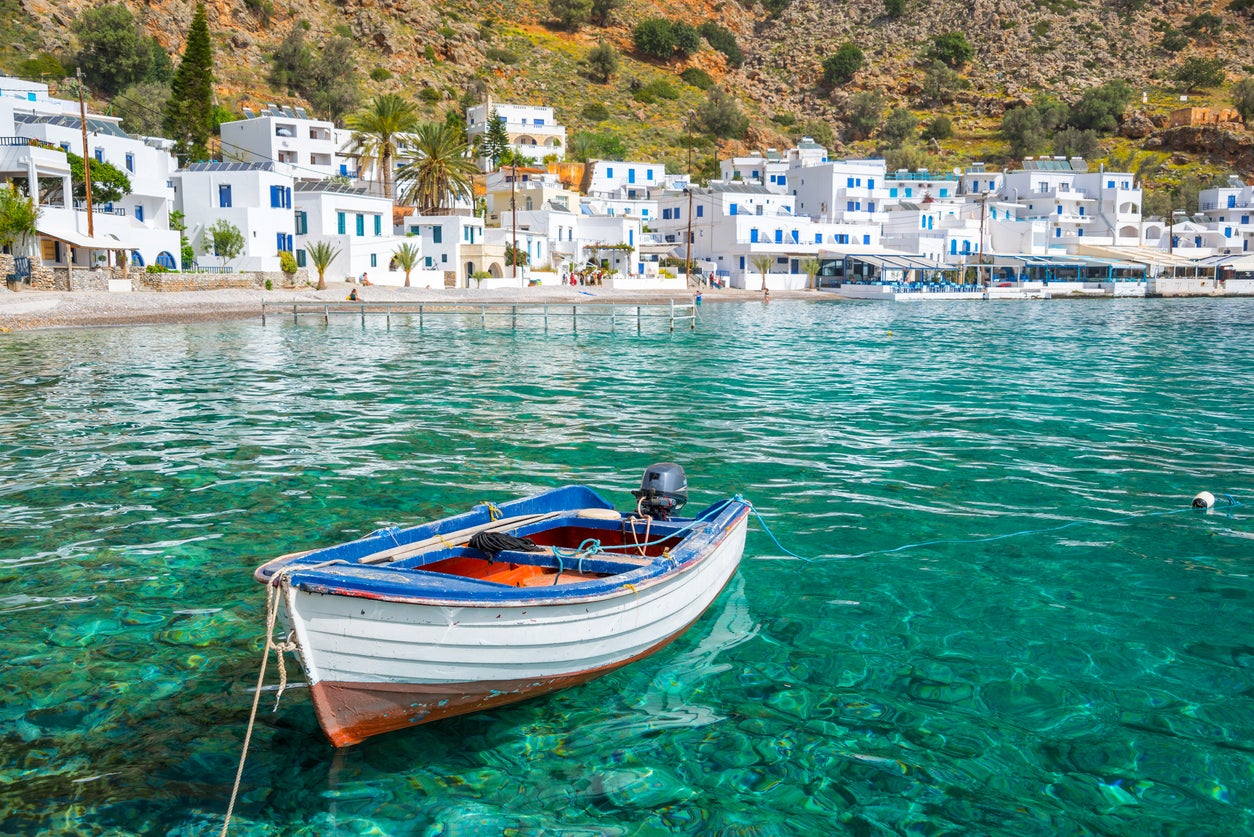
On 22 June, South Africa announced that it would drop all remaining Covid travel restrictions, becoming one of a handful of long-haul destinations to do away with its lingering traces of travel admin attached to the virus.
It joins a string of mainly European destinations to end all restrictions, with some of the earliest being Iceland, Norway and Sweden.
If you’re looking for the simplest possible holiday, these destinations - although not all the usual big hitters for summer holidays - might be your best bet.
All of these countries have now removed both entry requirements such as tests and proof of vaccination, and all or most of their rules on the ground (with masks recommended or advised in certain spaces, such as on public transport).
Meanwhile, countries such as Spain have held on to their travel rules for visitors from most countries - although it dropped all restrictions for EU and Schengen Area visitors on 2 June, visitors from third-party countries including the UK still need to show proof of vaccination or a negative test result.
The US and Australia have both ditched their pre-travel tests, but still require visitors to be fully vaccinated and hold the correct visas.
Here are your faff-free travel options, regardless of vaccination status:
Ireland
The UK’s emerald neighbour scrapped its remaining Covid-related rules for international visitors in early March, including eliminating its passenger locator form. Now travellers to the country, regardless of vaccination status, will have no pandemic-related admin to contend with before departure or on arrival. The Irish government announced: “From Sunday 6 March 2022, travellers to Ireland are not required to show proof of vaccination, proof of recovery or a negative PCR test result upon arrival. There are no post-arrival testing or quarantine requirements for travellers to Ireland.”
Denmark
This Scandi city-break favourite dropped the majority of its Covid rules back in February, but on Monday night eased restrictions even for unvaccinated people coming from non-EU countries - before, they’d needed a pre-travel test. However, authorities warned that they reserve the right to put restrictions on countries where new variants are detected. “As a part of this contingency, the so-called ‘handbrake’ can be activated if concerning variants emerge. The handbrake is not activated for any countries at this time,” said a government statement.

Norway
Norway was one of the first to axe all of its Covid restrictions in one fell swoop, back on 12 February. “From Saturday, 12 February 2022, you can travel to Norway without having to worry about anything more than having a good time!” the tourist board posted on its website. Post-Brexit, Britons do have to watch out for the current passport expiry rules - outlined here by Simon Calder - but they can visit countries such as Norway in the Schengen Area for up to 90 days in any 180-day period. From the beginning of 2023 or whenever the ETIAS scheme is up and running, Brits will require an ETIAS visa for Norway.
Iceland
Like Norway, Iceland was quick to drop the entirety of its Covid restrictions on 25 February in a bid to tempt back tourists. “All official epidemiological measures due to the Covid-19 pandemic will be lifted, both domestically and at the border,” the government said in a statement. “This eliminates all rules on restrictions on gatherings and schooling, as well as the requirement for isolation of those infected with Covid-19.” This means no tests or quarantine for anyone, vaccinated or unvaccinated.
Dominican Republic
The Caribbean nation of the Dominican Republic ended all Covid rules and mask mandates in mid-February. “It’s time to recover all our freedoms and way of life,” said president Luis Abinader at the time. Prior to the relaxation of rules, the island had retained strict mask wearing etiquette as well as using vaccine passports for certain venues.
Poland
One of the most recent to join this list, Poland scrapped all entry requirements on Monday, 28 March, following a decision to remove the mandatory mask rule on 23 March. Masks now are only required in hospitals and healthcare institutions. The country had previously been fairly strict, requiring proof of full vaccination and a pre-travel test. Now you can explore cities such as Warsaw and Krakov, test- and mask-free.
Montenegro
In mid March, Montenegro removed its Covid-related entry requirements, ending the demand for proof of vaccination or a negative test result on arrival. While slightly under the radar, Croatia’s neighbour has been slowly building a profile as a travel destination these past few years, and with Croatia holding firm to its “vaccination or test” rule, as well as a passenger locator form, some tourists may be tempted here instead.

Hungary
As of 7 March, travellers have no longer needed to test, show proof of vaccination or quarantine when holidaying in Hungary. Gergely Gulyás, the prime minister’s chief of staff, announced the move at a government briefing. Like all EU countries, Britons need to watch out for passport expiry rules, making sure theirs is valid for at least three months after the day they plan to leave. Hungary is a great choice for spring, be it the foodie, trendy capital Budapest or further afield, before temperatures ramp up in summer.
Lithuania
Visited by our travel correspondent Simon Calder this week, Lithuania announced in late February that it would no longer require visitors from certain countries - including the UK, those within the EU and EEA - to provide proof of vaccination a test result or fill in a health form. This is regardless of vaccination status. However, Foreign Office advice states: “On 24 February 2022, Lithuania announced a State of Emergency, in response to Russian military action in Ukraine.”
Slovenia
Slovenia dropped all of its remaining travel restrictions - bar a passenger locator form - at the end of February. “There are no longer any Covid-19 restrictions for entry to Slovenia,” read a statement from the tourist board. “The recovered/vaccinated/tested condition has been removed, making Slovenia an accessible, attractive destination for UK and Ireland travellers looking to experience incredible scenery, farm-to-fork cuisine, historic architecture, hiking trails, and much more.”

Romania
Increasingly popular with indie travellers and hikers prior to the pandemic, Romania lifted all remaining Covid restrictions on 9 March. This included the use of vaccine passports and the requirement to wear masks both indoors and outdoors. It coincided with the government’s decision not to extend a nationwide state of emergency that had been in place for almost two years. However, Romania is one of the least-vaccinated countries in Europe, with just under 42 per cent of the population choosing to take up two doses of the Covid-19 vaccine thus far.
Madeira
Madeira has been a hit with restriction-averse travellers throughout the pandemic, with spells of being one of the more relaxed destinations to visit in Europe. Since early March it has no longer required tests, proof of vaccination or isolation from either vaccinated or unvaccinated travellers - though some mask rules do remain on the ground. “There are no restrictions on the entry of travellers at the airports, ports and marinas of the Autonomous Region of Madeira,” the statement of Madeira Regional Tourism Board, though it recommends that all visitors fill in its “Epidemiological Survey” on the Madeira Safe website.
Sweden
This Scandi spring and summer break favourite dropped the remainder of its Covid rules on 1 April. Non-EU travellers now no longer need to show proof of vaccination or a test to visit the delights of Stockholm, Gothenberg and Malmö. “The government has decided not to extend the entry ban from third countries,” said minister for justice and home affairs, Morgan Johansson. “This will make it much easier for everyone who has been prevented from coming to Sweden in recent years due to the pandemic. It had earlier relaxed its restrictions for EU-based travellers only, on 9 February. As with all Schengen Area countries, check that your passport is still valid for three months after you leave and make sure it gets stamped on entry and exit.
Latvia
Also as of 1 April, travellers from the EU, European Economic Area (EEA) and the UK no longer need to show either proof of vaccination or a test result when entering Latvia. Travellers from outside of these areas do still need to show one of these (with children under 12 exempt). However masks remain common on the ground in Latvia, which is popular for its affordable capital, Riga - with some types specified: the tourist board website says “Medical masks or FFP2 respirators without a valve should be used on public transport, except for taxis and other commercial passenger transport.”

Moldova
Europe’s least-visited country - often forgotten outside of the Eurovision Song Contest - lifted its Covid restrictions on 16 March. No vaccine certificate, test or other documentation is required to enter the country. which has pretty monasteries, a great value capital in Chisinau, and a boutique wine scene. Not to mention European bison grazing around its rural hiking trails.
Czech Republic
Travellers to Prague and the wider Czech Republic no longer need to take a test or fill in a locator form, regardless of vaccination status. The country’s Ministry of Interior announced, “As of 9 April 2022, the protective measures regarding the conditions of entry into the Czech Republic in relation to the epidemic of Covid-19 have been suspended.” The capacity limits on venues such as museums has also been lifted, but FFP2 facemarks are still mandatory on public transport, as well as in hospitals and pharmacies.
Jamaica
Jamaica lifted all of its Covid-related travel admin, including a pre-travel test, on 15 April. The Caribbean favourite’s remaining mask rules were scrapped on the same day. Minister of tourism for Jamaica Edmund Bartlett said: “We are optimistic that these simpler requirements will serve to increase the appeal of Jamaica as a premier destination and keep us moving along the road to a stronger recovery for both the tourism sector and the nation’s economy as a whole.”
Cuba
Cuba dropped all testing and vaccination proof requirements for visitors on 6 April. All travellers are still required to complete a health declaration (Declaracíon Jurada de Sanidad) online before travel. However, it’s worth noting that the country has said it will continue to carry out random PCR testing on arrivals at its international airports, with the risk that you may test positive and have to go into government quarantine facility for 14 days, at your own expense.
Croatia
Increasingly a contender for the Med-loving crowds who usually flock to Italy’s coast and Greece’s islands, Croatia did away with its remaining Covid rules on 1 May. Previously, holidaymakers had to show either proof of vaccination or a negative test results on arrival, as well as filling in a passenger locator form. But from May onwards, travel to the Dalmatian coast, pretty islands and beyond is pleasingly friction-free - as with all Schengen Area countries, do look out for the latest post-Brexit rules regarding length of stay and passport expiration dates.

Vietnam
In mid May, Vietnam became the first country in Asia to scrap all Covid-19 travel and entry guidelines for travellers arriving by air - regardless of vaccination status. With the new rules coming in from 15 May, holidaymakers arriving from the UK for up to 15 days can simply arrange a visa waiver online, making sure their passport is valid for six months from their date of arrival. (Previously visitors had to take a pre-travel PCR test or quarantine on arrival.) Travellers arriving by road, rail or sea still need to take a PCR test on arrival, however - self-isolating until they receive a negative result.
Israel
Israel dropped all of its remaining Covid travel rules - including proof of vaccination, pre-travel tests and quarantine - for all travellers on 21 May. This was an especially big change, as previously holidaymakers had to test before and after travel to the country. “This is the news we have been waiting for, for more than two years,” said Sharon Ehrlich Bershadsky, director of the Israel Government Tourist Office. “With Israel joining many other countries in dropping all Covid restrictions, I am hopeful the travel industry has now reached a crucial milestone in this post-pandemic world.”
Italy
Italy ended all border and entry requirements related to Covid on 1 June - this means that, regardless of vaccination status, you no longer have to show proof of vaccination or a test result when entering the country. The passenger locator form had already been dropped a month prior, on 1 May. However, it has remained firm on the use of a specific type of face mask - FPP2 masks - on all public transport, and in hospitals and health care facilities. It is also recommended to wear these in crowded public settings.

Greece
Greece scrapped all entry and border requirements related to Covid on 1 May, following that up with and end to its mask requirement (in most settings) on 1 June. Holidaymakers to Greece no longer need to present either proof of vaccination or a negative test result on entry. You still need to wear a face mask on public transport and any health care facilities. The country had previously removed its use of vaccine passports for some indoor venues and events.
Cyprus
Cyprus removed its requirement to present proof of vaccination or a negative test result on 1 June. The Mediterranean island also removed its rule around mask-wearing, which previously demanded that everyone aged six and above wear a mask in crowded public settings. You will still have to wear a mask on public transport and in medical facilities. The country had previously ended its use of passenger locator forms in April.
Turkey
One of the UK’s favourite budget holiday destinations, Turkey lifted all of its remaining Covid restrictions on 1 June. Passengers arriving in Turkey are no longer required to present proof of vaccination or negative PCR test results. Previously, fully vaccinated travellers could enter without needing to test or quarantine, but had to show proof of their vaccination status - while unvaccinated travellers had to show proof of a negative PCR test.
Armenia
Effective 1 May 2022, inbound travellers to the Asian country of Armenia - fomerly an emerging travel destination, along with Georgia - are no longer required to present a PCR test or a certificate of vaccination to enter. The country had previously lifted the majority of its remaining mask rules in March, with mask-wearing now only expected on public transport and in taxis.
Oman
This middle eastern adventure hotspot dropped all of its Covid restrictions, including proof of vaccination and the local mask mandate, on 22 May. The Foreign Office warns: “The Omani authorities have removed all Covid-19 restrictions. Your airline may have rules in addition to those set out by the Omani authorities (e.g. requiring you to provide a negative PCR test before boarding, wearing a mask etc).”
Germany
As of 11 June, Germany has lifted all Covid-related travel restrictions - “for the time being”, according to its tourist board. “ It is no longer necessary to present proof of vaccination, proof of recovery or a negative test result for entry to Germany,” confirms the Germany.info website. The German government has not clarified when this decision may be reviewed. Like Italy, FPP2 masks specifically are still required on public transport in Germany.

Estonia
Estonia ditched the remainder of its Covid travel restrictions on 16 June, for third-party countries such as the UK as well as EU countries. “The repeal of the order governing the crossing of the border will remove restrictions on third-country nationals arriving from outside the European Union, the European Economic Area, Switzerland, the United Kingdom, Andorra, Monaco, San Marino, and the Vatican,” said a statement from the government.
Egypt
The Foreign Office recently updated its travel advice for Egypt to reflect the end of the country’s Covid rules. Travellers no longer need to provide proof of vaccination status for entry or test on arrival in any part of the country (previously a requirement for Red Sea areas such as Hurghada). The change in rules was made effective from 20 June.
South Africa
South Africa ended all travel restrictions on 22 June. Holidaymakers and visitors no longer need to show proof of a Covid vaccination at the border, nor take any tests before travel or quarantine once in the country, regardless of vaccine status. Previously unvaccinated and partly vaccinated people aged 12 and over had to take a PCR or antigen test before their flight. Additionally, lingering restrictions on gathering sizes, and the requirement to wear a mask in crowded indoor settings and on public transport have been removed.







